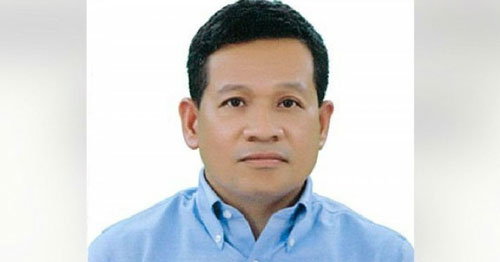Manila
Stronger inter-agency support for the establishment of Islamic banking in the Philippines makes authorities and Islamic finance professionals see a bright future for the sector in the next few years.
Lawyer Noel Tianela, Bangko Sentral ng Pilipinas’ (BSP) Supervisory Policy and Research deputy director, said he is not allowed to give specifics on the number of applicants for Islamic bank or branch operations in the country but noted there are one to two possible prospects.
Tianela said one of these players “is a very influential bank in other jurisdictions.”
“Hopefully they will decide on whether they will be establishing a branch of a full-fledged Islamic bank,” he said in a virtual conference titled “Delivering Islamic Microfinance in BARMM (Bangsamoro Autonomous Region in Muslim Mindanao) Tuesday.
Tianela said among the options for the establishment of this particular bank class is setting it up not in Metro Manila, but in the BARMM.
He added one of the parties has indicated willingness to cooperate with the BARMM government and it has been informed that the latter has issued resolutions regarding the provisions for additional fiscal incentives to any Islamic finance firms that will establish operations in the region.
“We have a positive anticipation (that) in the next one or two years, there will be other Islamic banking players that will operate primarily in the BARMM,” he said.
Islamic banking got a boost after Republic Act (RA) 11439, otherwise known as the Islamic Banking Act, was signed into law on Aug. 22, 2019.
Tianela said all government agencies are mandated by the law to provide capacity building initiatives for Islamic banking.
He said regulators have already addressed the issue of inequality among players, adding the Islamic financing will not be taxed heavily compared to regular bank financing. During the same event, ASA Philippines Foundation Inc.
consultant and Islamic microfinance specialist Maharlika Alonto indicated optimism on the sector’s prospects.
“I have so much faith in the prospect of Islamic finance, not just banking, in the Philippines because you’ve seen at least in the last five years initiatives and interventions that are coming together,” she said.
Alonto said the Halal Board, an inter-agency group composed of the Department of Trade and Industry, Department of Agriculture, and Department of Foreign Affairs, among others, is overseeing the implementation of the Philippine Halal Export Development and Promotion Program and working hard to promote the industry.
She said BARMM is being considered not just for Islamic finance but also a Halal hub and the region’s authorities are fully supporting this.
“So I really feel that once you see Halal complementing efforts on Islamic finance and Islamic banking, there’s so much growth potential there. And that’s very dynamic and complete.
So I see that probably in the next five years, we’ll see more players coming into play,” she added.— Philippines News Agency









